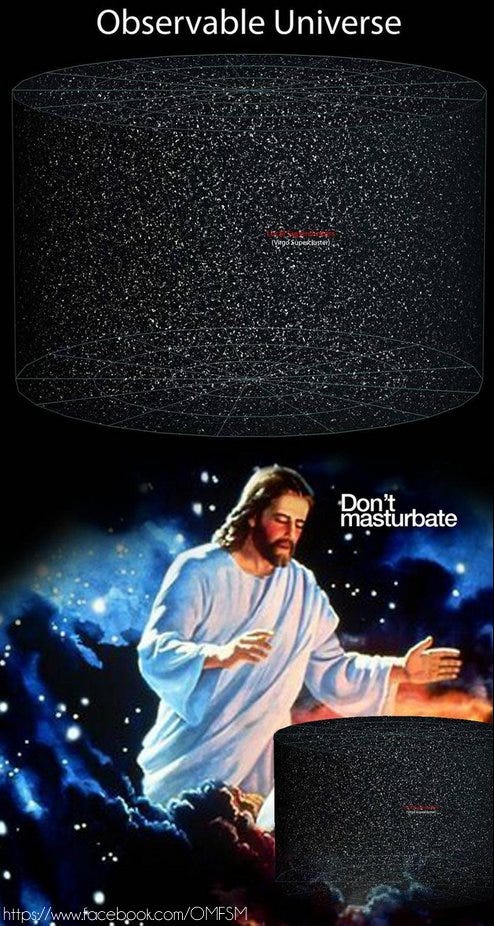On the Nature of Things
Epicurus to Lucretius and back again
In the first century, Roman poet and philosopher Lucretius wrote a poem in six books to explain Epicurean philosophy, including physics.
Epicurus thought that humans were unhappy and degraded because of their dread of the power and terror of deities. He sought to ameliorate these fears by showing that no deity created the world, but that it was created by elemental particles governed by simple laws.
He didn’t deny there was a deity, but it was not concerned with us. Which reminds me of a recent joke – a little boy asks a priest, “you are telling me that god does not know about the priests molesting children in the church, but he knows if I masturbate at night?”
Lucretius set about to make the views of Epicurus palatable. All these centuries later, we keep finding more and more elemental particles and that the laws of physics are not quite so simple, but Epicurus’ basic premise was right: No deity was needed to create the world we know.
So how has this lie been maintained for 2,400 years?
Lucretius explained that the world was created by natural but purposeless actions and interactions in empty space — chaos theory. Since we still don’t know what dark matter and dark energy are, we are not so sure space is “empty.”
His explanation of matter, space, atoms, time, and reproduction are basically correct. He too, like Epicurus, denied that gods listen to or care about human affairs, such as who wins which basketball game.
That belief seems to cheapen their gods, as does other actions like saying invocations are not religious and crosses are secular… but that seems not to bother them.
Lucretius also weighs in against superstition. The first two books explain atoms. The third book explains that we are of one piece – our body and our mind and for those who believe – our soul. When we die, it all goes. Once dead, no feelings exist, just like before we were born, so there is no need to fear.
The fourth book talks about the senses as well as dreams and sleep, love and sex. The fifth book addresses nature – the origin of the world; the movements of the stars; the changing of the seasons; the rise and progress of humankind, society, and political institutions; and arts and science. None of it is far off from reality today.
The sixth book talks about weather, animals, and diseases. An abrupt ending suggests Lucretius may have died before he could finish. The poem was allegedly written to a judicial officer presiding over controversies between the citizens and the government. That officer became disqualified for bribery and their friendship may have cooled.
Once again, sounds about like today. Kyrsten Sinema and I used to be great friends.
Lucretius didn’t deny there were deities — just that they didn’t create the world, they don’t care about human affairs, and don’t interfere. The existing church hierarchy still called him an atheist because he believed the world was created from chaos and denied providence, divine participation, miracles, prayer, and an afterlife. Church fathers, of course, criticized him, while others argued that he was attacking paganism and superstition, not Christianity (which did not even exist then).
But 19th to 21st century atheists picked up his ideas. The 1934 song about saying a spoonful of sugar makes the medicine go down, echoes his 25 repetitions in the six books, in which he says that poetry is like honey that sugarcoats the medicine to make it easier to swallow.
Are words mightier than the sword? 2,400 years later we are still using his metaphor, but then we have better swords now and lots more of them.
Lucretius didn’t deny that a soul existed, only that it was intermeshed in the body, was made up of atoms, and upon death they drift apart. He analogized it to a vase – when it falls on the floor and shatters, its parts fly everywhere.
Likewise, when a person dies, her atoms fly apart and dissipate. The nothingness after death is the same as the nothingness before we were born – since we knew nothing about it, it causes us no harm.
Epicurus focused on astronomical topics – things we could see. Lucretius focused on the things we can’t see - atoms. He acknowledged that there were things we did not yet know but in due course would find out – and we have through empiricism and observation.
But he made one big mistake. Though the round earth theory was well-established by that time, he favored a flat earth cosmology. Presaging Einstein, he allowed for the curve (or swerve) of space and pull of nuclear forces and gravity by claiming that atoms move in a straight line but in uncertain times and places they may deflect a little and that is how things got produced.
No originals of the poem exist, but copies date to the 9th century when it was discovered in a Benedictine library. It seemed to be well known by the 13th century and though an English version was done in in 1640 or so, it was not published until1996.
Many of the things Epicurus philosophy predicted in the first century BC have been proven to be true.
Nothing the church predicted has been proven to be true.
Prayer doesn’t work, no one has returned, no rapture occurred leaving behind a nice car, and the world hasn’t ended. So how is the myth told by the church been able to not only persist these 2,400 years, but overcome the truths known from the beginning and now proven?
Dianne Post 4/26/23







